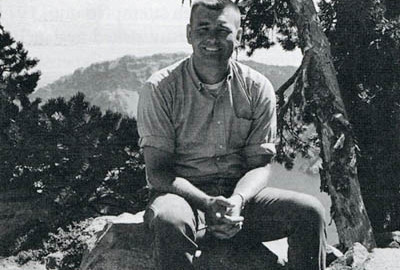Yes.
I don’t know how much of that analyses is in the annual reports, or if they’re just progress reports on what is being done. I don’t know. There should be accountability because a lot of money is being spent, a half million each year I suppose (42). I think there should be more frequent reports that could be done, possibly with the annual report, where the data gathered over the previous year is analyzed and findings presented. It might build on previous reports so that you could begin to see what’s happening through time with all these measurements.
Could there be more frequent peer review (43)?
Yes. Peer review was something I emphasized when I was setting up the program. I thought it was absolutely essential that we have people outside the Park Service — outstanding scientists, independent researchers, maybe a half dozen or so, who would be hired to come and evaluate our program as well as the methods used. They would make recommendations on our program in order to make it better, as well as to analyze the data with us, or look at our conclusions and determine if what we’re finding is really scientifically sound. When you submit a paper to a journal it goes through peer review to see if it’s scientifically sound. We need that at Crater Lake. It was used early in the program because you needed to have outside expertise to evaluate the data, and any conclusions drawn from it.
I think it’s probably less frequent now.
It should be done yearly.
Yearly?
Yes, yearly. Sometime maybe in the fall, at the end of your intensive monitoring period like June through October, sit down with the data that was collected over the previous year. Bring in your experts, meet at OSU or somewhere that’s convenient. I don’t see this as being a big cost. If nothing else, you’re tossing ideas around. Where have we been and where are we going? I think these are things that need to be discussed; otherwise the program gets mired down in bureaucracy and it becomes sort of an in-house thing and it loses its direction. The program [without frequent peer review] could become tainted with politics and begin to lose its scientific integrity. The only way you can have scientific integrity is if you open it up to outside, independent observers and peer reviewers who can criticize, redirect if necessary, and add to what might be needed to make a better program. You may otherwise end up with a lot of data that’s useless or be gathering a lot of data that you don’t need, and may be missing things that need to be investigated. Independent, outside review really helps to keep a program on track. One of my first recommendations years and years ago was to have outside, independent peer review.
I don’t know what else I can say, that kind of brings us to the end. You mentioned my other work at Bull Run, Spirit Lake (44). I’d be happy to talk about those things.


